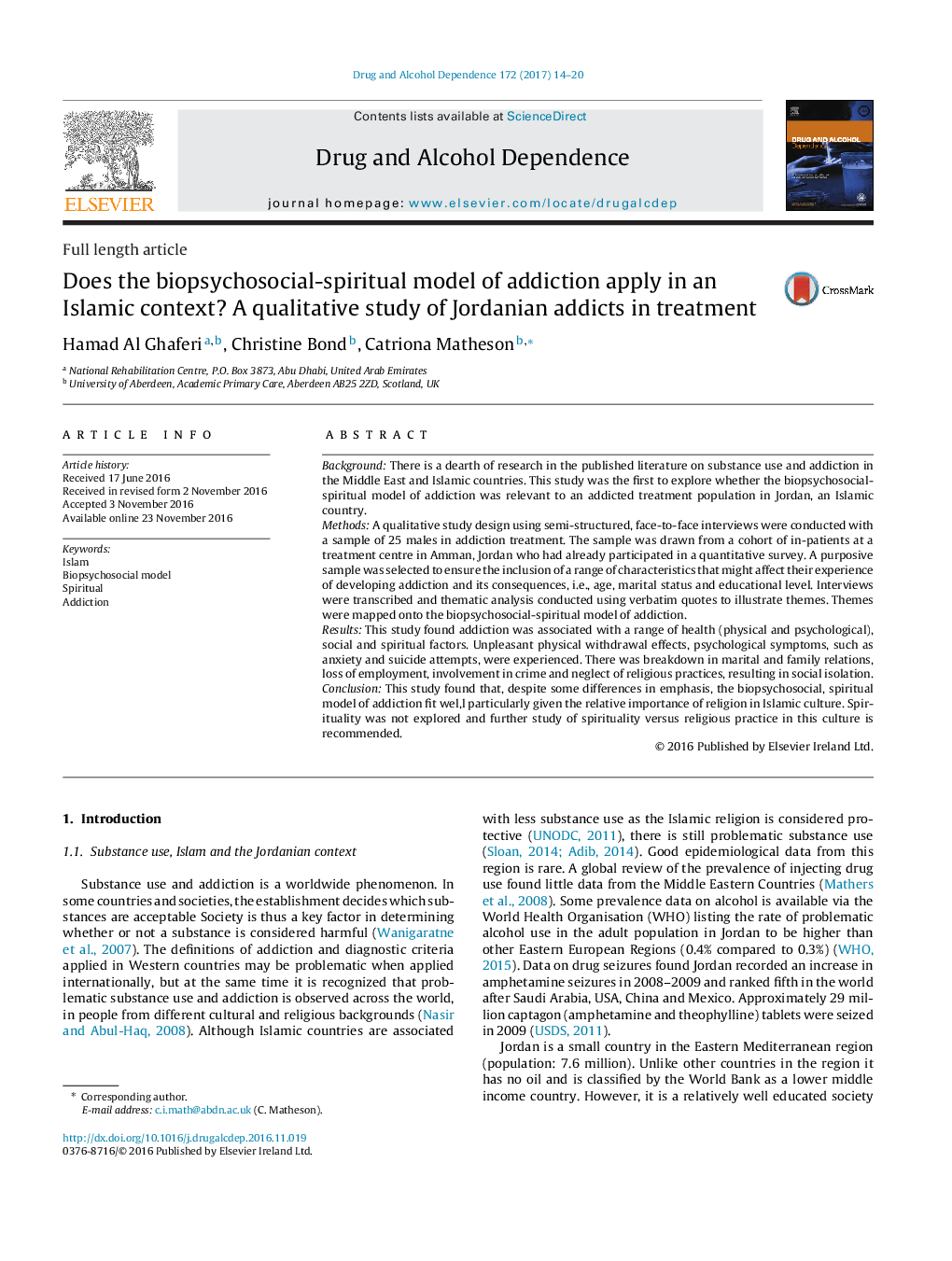| کد مقاله | کد نشریه | سال انتشار | مقاله انگلیسی | نسخه تمام متن |
|---|---|---|---|---|
| 5120102 | 1486119 | 2017 | 7 صفحه PDF | دانلود رایگان |
- Addiction had health, social and spiritual consequences.
- Participants described loss of employment, crime and social isolation.
- The power of addictive substances overpowered religious practice.
- The biopsychosocial-spiritual addiction model fitted well in the Islamic context.
BackgroundThere is a dearth of research in the published literature on substance use and addiction in the Middle East and Islamic countries. This study was the first to explore whether the biopsychosocial-spiritual model of addiction was relevant to an addicted treatment population in Jordan, an Islamic country.MethodsA qualitative study design using semi-structured, face-to-face interviews were conducted with a sample of 25 males in addiction treatment. The sample was drawn from a cohort of in-patients at a treatment centre in Amman, Jordan who had already participated in a quantitative survey. A purposive sample was selected to ensure the inclusion of a range of characteristics that might affect their experience of developing addiction and its consequences, i.e., age, marital status and educational level. Interviews were transcribed and thematic analysis conducted using verbatim quotes to illustrate themes. Themes were mapped onto the biopsychosocial-spiritual model of addiction.ResultsThis study found addiction was associated with a range of health (physical and psychological), social and spiritual factors. Unpleasant physical withdrawal effects, psychological symptoms, such as anxiety and suicide attempts, were experienced. There was breakdown in marital and family relations, loss of employment, involvement in crime and neglect of religious practices, resulting in social isolation.ConclusionThis study found that, despite some differences in emphasis, the biopsychosocial, spiritual model of addiction fit wel,l particularly given the relative importance of religion in Islamic culture. Spirituality was not explored and further study of spirituality versus religious practice in this culture is recommended.
Journal: Drug and Alcohol Dependence - Volume 172, 1 March 2017, Pages 14-20
